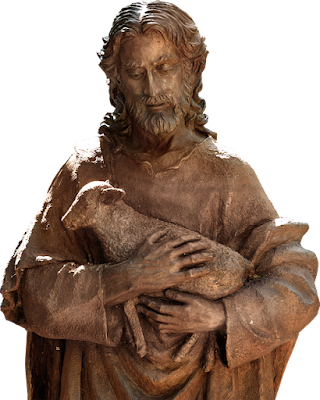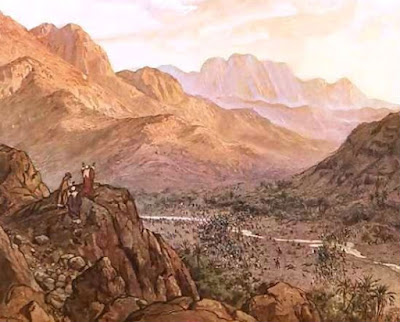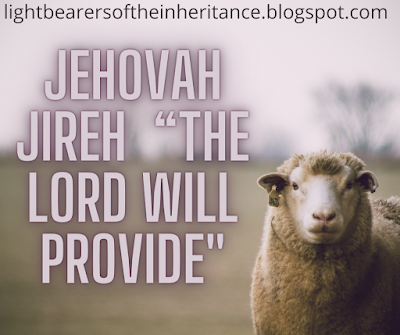The use of God’s name, Jehovah Raah, is found in Psalm 23, often referred to as the Shepherd’s Prayer. David wrote this Psalm, and with his shepherding background, the depth of the meaning of this name is far-reaching. For more specifics on shepherding in biblical times, you can check out The Lord is my Shepherd I shall not want. If you followed my names of God posts, you know I revisited the topic because I wanted to know and understand Him better as I prayed.
Jehovah Raah meaning
The names of God reveal aspects of His nature. For this post, I discuss the meaning of His name, Jehovah Raah. It means the Lord is my Shepherd. Once you have an understanding of what it means to be a shepherd, this name takes on qualities of character that I find reassuring on many levels.
The Lord our Shepherd is our Nurturer
When you hear the word nurture, what comes to mind? I think of food. As a noun, nurture means "that which nourishes; food; diet, and that which promotes growth." It means more than just food because we don’t just nurture the physical. Nurturing applies to the whole person. It includes education and instruction. And, ye fathers, provoke not your children to wrath: but bring them up in the nurture and admonition of the Lord (Ephesians 6:4). As a verb, nurture means "to feed; to nourish, to educate and to bring or train up." We see the Lord’s role as the nurturer in Psalm 23:1-4. He nourishes his sheep spiritually, and if the Lord is your Shepherd he will train you to see the way you should go.
The Lord our Shepherd is our Provider
In a previous post, we looked at God’s name Jehovah Jireh, which means The Lord will provide. This name was used when Abraham stood at the altar prepared to offer his son Isaac as a burnt offering at God’s request. God had promised him that his descendants would come through his son Isaac, and even at this time, Abraham believed him. In faith, Abraham prepared to sacrifice his son. Just before he plunged the knife into Isaac, God provided a ram to sacrifice in Isaac’s place. This is a picture of what God did for us through his Son, the Good Shepherd. Jesus gave up his life for his sheep. He became the sacrifice in our place by taking the penalty for our sin when he died on the cross.
The Lord our Shepherd is our Guide
Shepherds walk before their flock. They guide them to food and water. Sheep know their shepherd's voice and follow him. Again, think of this in a spiritual context. Sheep don’t have the inborn ability to find water or pasture lands on their own. They don’t think to move on to nearby green grass and will starve. They must be led by the shepherd to green pastures. It’s the same with water. Jesus said, “I am the bread of life. No one who comes to Me will ever be hungry, and no one who believes in Me will ever be thirsty again” (John 6:35). As our Shepherd, Jesus guides us to the spiritual food we need for life.
The Lord our Shepherd is our Protector
In John 10:9-16, Jesus describes himself as the door and as the good shepherd. When the sheep were taken to the sheepfold, it was comprised of three sides that offered protection from predators. Once the sheep were safely in the fold, the shepherd laid across the opening as the door. No one got in or out without the shepherd’s knowledge. If a thief entered through a window, the sheep would run away because they knew their shepherd. David understood first-hand that the shepherd protects his sheep.
In his own life, we read in 1 Samuel 17:34-36 that David killed a lion and a bear to protect his flock. Psalm 121 talks about the protective nature of God and concludes in verses 7-8 by saying, The Lord will protect you from all harm; He will protect your life. The Lord will protect your coming and going both now and forever. Remember, this is referring to your spiritual life. As the Good Shepherd, Jesus' sheep enter the pen through him. Once you become one of his sheep, he protects your life in Him forever because you belong to him.
The Lord our Shepherd is our Companion
The Shepherd is always with his sheep. Day and night they live and sleep together. David even played music while with his sheep. The physical presence of the shepherd calmed and reassured the sheep. Before Jesus left this world he promised his disciples to send another just like himself, “the Counselor, the Holy Spirit—the Father will send Him in My name—will teach you all things and remind you of everything I have told you” (John 14:26). He went on to promise them His peace and reminded them not to be troubled or fearful. Matthew 28 closes with these words from Jesus to his followers, “And remember, I am with you always, to the end of the age.”
Not only do the names of God provide a deeper understanding of who he is, but they also work as pointers toward the Good Shepherd, the Savior.
Photo credit: Image by Uce from Pixabay, Image by Vicki Nunn from Pixabay



















